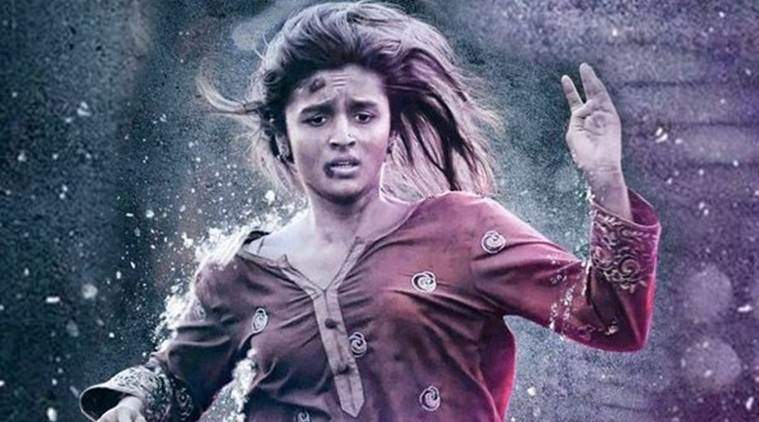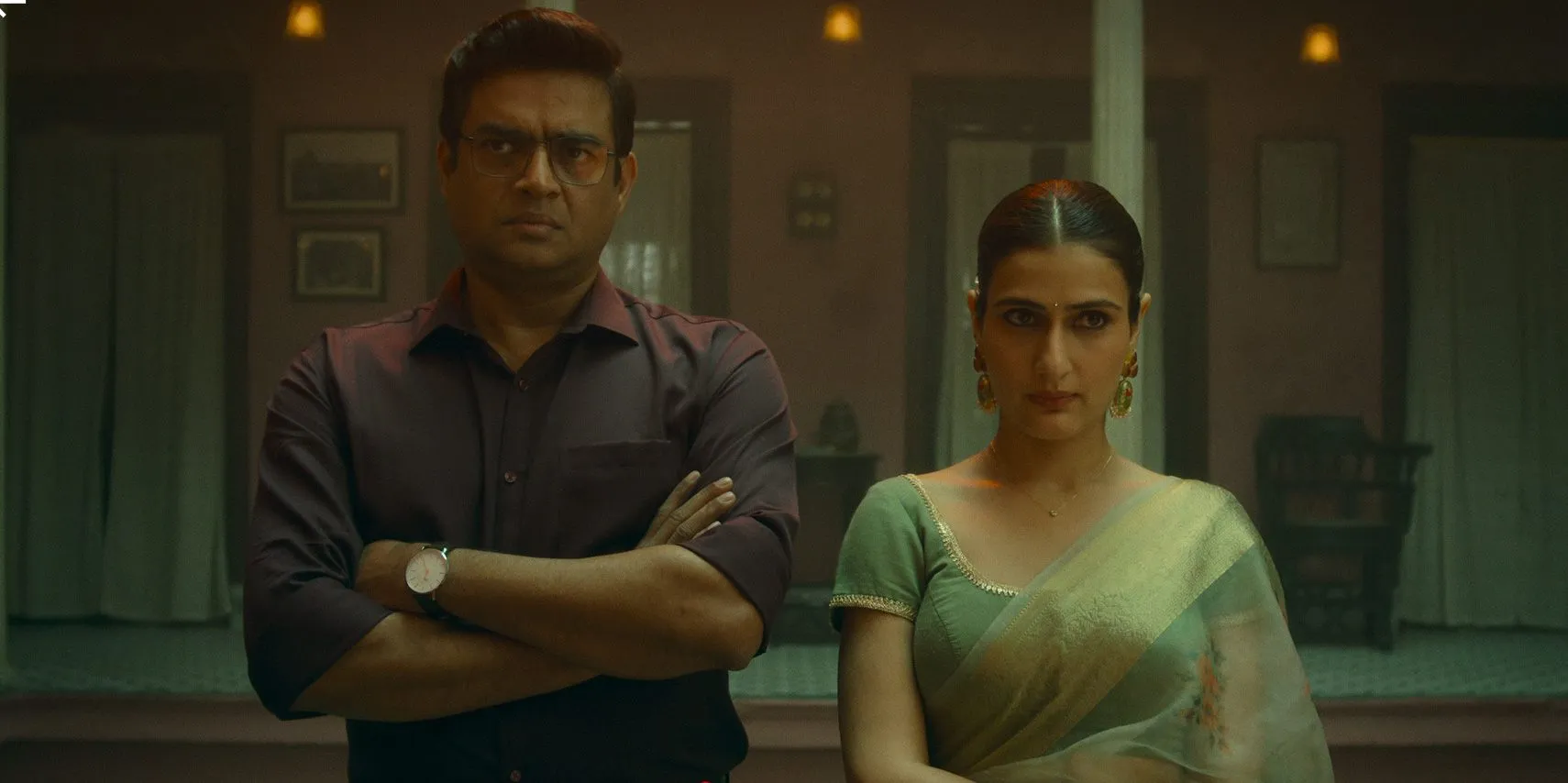Choppy, murky, untethered and raw- that’s precisely what the narrative of Udta Punjab boils down to. The theme of the film revolves around drug smuggling and horrific consequences of narco-terror, which is affecting four different lives in different ways, leading them to face their struggles, yet joining them all with a common thread against the backdrop of drug abuse in Punjab. Abhishek Chaubey has spun the web of his narrative technique in the film by his clearly etched-out characters and their respective struggle with drugs. He, along with his co-writer Sudip Sharma has tied up the aspect of drug crisis in Punjab with the political dynamics of the state in their narrative, thus making it gritty and powerful.
The movie revolves around the subject of substance abuse. However, it deals with various other issues in subtle ways and breaks a lot of stereotypes. The characterization of women characters in the narrative isn’t meek, submissive and subdued. There is no straight-jacketing of women characters, and they essentially aren’t reduced to being the necessary spice of screenplay. Their importance and story is as important as the respective stories of Tommy Singh and Sartaj. Their portrayal has substance and expression, individuality and self-worth.
Tommy Singh (Shahid Kapoor) is a rock star, and a youth icon whose songs propagate the usage of drugs. He is wild, erratic and takes drugs to get high and unleash his best during his stage performances. There is a dark humor associated with his character, and the scenes in which he is seen acting frenzied, calling himself “Gabru”, though on one hand adds laughter to the screenplay, but on the other hand also reveals his helplessness as a prey to substance abuse. Eventually when his stardom comes crashing down to pieces, his fans still care about the songs and crew members, about the business. But no one bothers about who he is as a human- as if his stardom was figuratively based on the loose grounds of drugs, which is a mirror of fallacy. Kapoor delivers a clean and edgy performance and does great justice to his role of an upbeat, eccentric singer.
Alia Bhatt as an unnamed Hockey-player and migrant from Bihar touches the emotional pitch of the narrative in the most gut-wrenching manner. In order to escape reality and seek better fortune, she unfortunately falls into the horrendous world of drugs and is inflicted with drug abuse. Her sketch of a Bihari migrant struggling with a terribly harsh situation is painful. Bhatt displays adhering grasp of her role during the course of the movie, and this is her finest performance till date. The real deal of her character is being a fighter, wherein she still hopes for freedom, redemption, and good days to put an end to her sorrow. Her portrayal of a victim, both of drug and sexual abuse, is emoting and powerful, but it doesn’t make her stereotypical woman shedding tears because her “izzat” has been ransacked. She fights back in one of the most empowering ways and seeks her freedom the way she claims her life. She emerges as someone who voices her cries and agony in the most unapologetic manner. She blames her situations, but not herself, in contrast to the patriarchal conditioning that one gets from the society.
Not even once has the movie promoted rape culture while depicting it on the celluloid, which the Hindi film industry has been shamelessly propagating it over the years in the most clichéd ways.
The narrative also describes her character as “beautiful” and “enchanting” in one of the songs derived from the poem, “Ik Kudi Jida Naam Mohabbat“—by Shiv Kumar Batalvi. This needs to be mentioned especially because the appearance of her character is just the opposite of the beauty standards set by the society. It also breaks the blame game a rape-victim suffers from, where in the film she is deliberately shown unattractive according to societal beauty standards, and is shabbily dressed, yet is raped and abused, pointing over the fact that rape can happen to any women, and the survivor is never responsible for it.
One very interesting aspect of Bhatt’s characterization is her hope for good days and freedom. On a closer look, freedom to her could mean a way to break free from the patriarchal setup that made her a victim to certain situations of life, wherein she couldn’t be what she wanted, couldn’t get what she deserved, and where life underwent a downward spiral which she couldn’t take hold of.
Similarly, Kareena Kapoor’s character of Dr. Preet emerges as another strong character of bravery and intelligence. Equality of all levels is displayed between her character and Sartaj (Diljit Dosanjh), while they are on their quest to smash drug-dealing web in Punjab which has its roots in politics. Kapoor has delivered a clean performance in her straight-forward role. However there was a little hint of Geet from ‘Jab We Met‘ at certain points of her performance, which just got the screenplay a little diverted from the context of storytelling. Also, in one of her dialogues she tells that she is a lady doctor, and therefore cannot do a ‘daring’ task meant only to be done by a ‘male’ police officer. This can be interpreted as a paradox- either essentially emphasizing on gender roles, or just reflecting the reality which every gender undergoes under patriarchal conditioning.
There is another paradox associated with the film. On one hand, it voices strong female characters, on the other hand uses the main tag line as “Drug di ma di..“-a Hindi swear word to shun the usage of drugs, which however might grab a lot of eyeballs, but essentially gravitates back to the usage of “ma-behen” swear words to stress on the ugliness of a thing/task/person and pointing out that women in the country are still reduced to swear words.
But the movie reflects societal realities, and so this aspect might have been introduced to work the other way around, to just make it look more authentic, because that is what the key objective of the film is, pointing out that it is the society which is to be blamed.
Sartaj (Diljit Dosanjh), the assistant inspector thrives on bribes and maintains his indifference over the issue until he comes to know that his younger brother Balli is addicted to drug, thereby sensitizing him over the issue. His life is saved by Preet and this is the point when their fates and paths coincide. Through Balli, the dead end of substance abuse over youth is portrayed in a way that it renders your heart cringe over the horrific situation. Diljit Dosanjh is fresh and edgy in his debut and does justice to his role.
The darkness of the plot also twists towards the halo of love, giving a transforming edge to the characters.
The dramatic aspect of the screenplay provides necessary relief, without fading out its essence of being real. Amit Trivedi’s music doesn’t take away the rawness of the script, and goes perfectly well with the vibe of the film. The cinematography is poignant and works well for the film. Beauty of the film also lies in shunning the gender roles and breaking the norm of stereotypical portrayal of women.
The film gets a little sluggish in the post interval part, somewhere torn in between a need to retain its authenticity and giving it a more fictional treatment. However, in totality, it does not get diverted from its point and is a stark reality of the growing drug insurgence in the state of Punjab. The movie has pushed the envelope of mainstream cinema and is definitely worth the fight against censorship and hypocrisy. The portrayal of a heart-wrenching reality, along with its dark humor and wonderful storytelling, Udta Punjab is a must-watch!
Also read: Udta Punjab: The Problem Isn’t the Drugs, It’s the Patriarchy
Featured Image Credit: Alia’s Bhatt’s character from the official film poster
About the author(s)
Tatsita is a postgraduate in Public Policy and Governance from Azim Premji University. A film and cultural studies enthusiast, Tatsita is fascinated by the Marxist, Post-Structuralist, Post-Modernist and Psychoanalytic school of thoughts to understand the idea of power in complex human relationships as well as oppressive social structures around gender and caste. Her interests also include film editing, sociology of law and intersectionality of urban housing patterns in India. She can be found on Twitter.





Udta Punjab sure hits you hard and manages to rattle you. All the minute details of the drug worl have been taken care of. All the ma-behen gaalis do sound offending but that is how it is and portraying anything else would have been deviating from the reality. Like the writer has said, the problem is patriarchy. The paradox of between the song and Alia Bhatt’s character is to my mind is beautiful because she comes nowhere near a conventional beauty. Only goes to prove the adage “beauty is in the eyes of the beholder”. I love the way she bashes up the guys chasing tommy singh and when it is his turn, he cannot save her from her offenders. She is as much a victim of drug abuse as he but she manages to beat them with all her physical might. And i like the way she weans herself off drugs. What a struggle it is for her, sleeping with a cloth stuffed in her mouth. In contrast is Balli, who has all the help but is still helpless. Shahid kapoor is so convincing as the eccentric pop singer and daljit dosanjh gives a heart warming performance.
great work Tatsita. I am a research scholar from Jharkhand and I found your review on feminism great. I had to present a paper at a national seminar on finding voice of women in Indian cinema and I found your work a great source of citation. Thanks. On with your work.